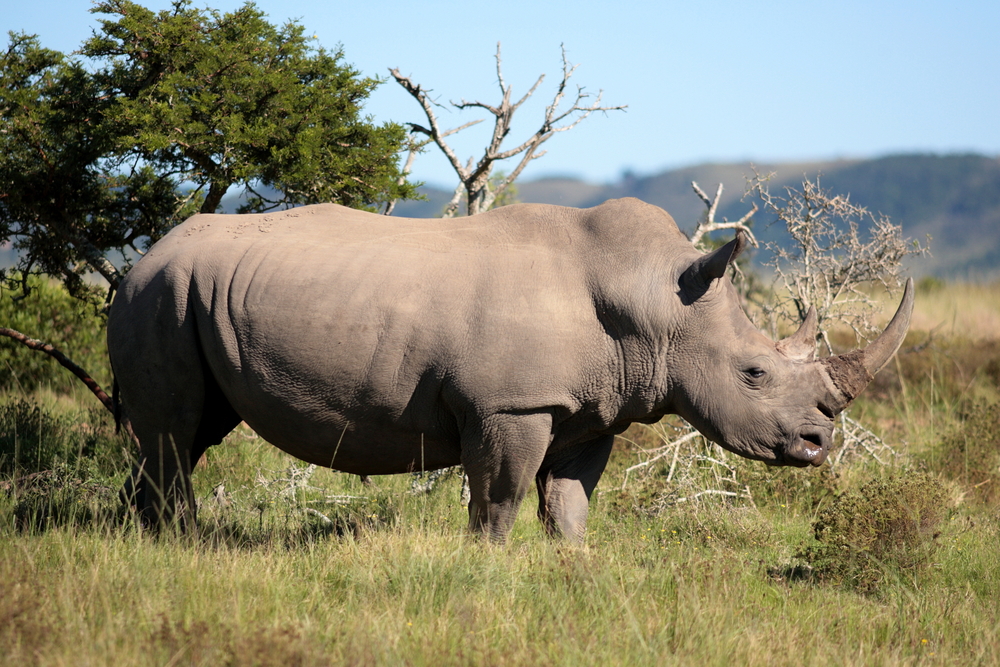South Africa’s efforts brought rhinos back from the brink of extinction in the 1960s, but the species remains threatened with a population of only 20 000.
The Minister of Environmental Affairs, Edna Molewa, has released the first 2018 progress report on government’s integrated strategic management approach to combat rhino poaching.
The report, which also covers the last quarter of 2017, shows progress in the number of arrests, investigations and successful convictions of rhino poachers and smugglers and a minor decrease in the number of rhinos poached nationally in 2017 (1 028), compared to 2016 (1 054).
In 2017 there were eight seizures of rhino horn at OR Tambo International Airport and 502 alleged rhino poachers and 16 alleged traffickers were arrested, bringing the number to 518, a decrease from 680 in 2016.
“Regrettably, 21 officials from our own personnel were arrested for poaching-related activities in 2017,” Minister Molewa said.

Curbing poaching
Government and its partners have instituted various measures to curb rhino poaching, including patrol programmes at national parks and utilising game-changing technology.
Between January and December 2017, 504 rhinos were poached at the Kruger National Park (KNP), which is 24 percent less than the 662 in 2016.
“As a result of our anti-poaching strategy in the KNP we are seeing a decrease in the number of poacher activities in the park, with 2 662 recorded in 2017 compared to 2 883 in 2016. This represents a percentage decrease of 7.6 percent,” the Minister confirmed.
However, the number of rhinos poached in KwaZulu-Natal, the Northern Cape, Mpumalanga, the Free State and the North West has increased.
Effect on the economy
Rhino poaching and wildlife trafficking negatively impact the economic development of the country and job creation, including the development of the country’s biodiverse economy which incorporates the tourism sector.
“The loss of one of South Africa’s iconic wildlife species such as the rhino, which is one of the ‘Big Five’ can have a negative impact on the number of tourists visiting South Africa. Many tourists visit South Africa to come and see the Big Five, which are rhino, lion, buffalo, leopard and elephant,” the Department of Environmental Affairs said in a statement.
Rhino poaching has been recognised as a security risk to the country, which may impact the number of tourists visiting the country, and government has declared it as a national priority crime.
The illegal activities associated with rhino poaching and the trafficking of rhino horn only benefit a relatively small criminal fraternity.
“These criminal networks take advantage of the complexity of this type of crime. While the syndicates reap the benefits, government’s ability to ensure socio-economic development is hampered because organised crime syndicates and activities become more embedded in communities across the country,” the department confirmed.



 Facebook
Facebook Twitter
Twitter WhatsApp
WhatsApp